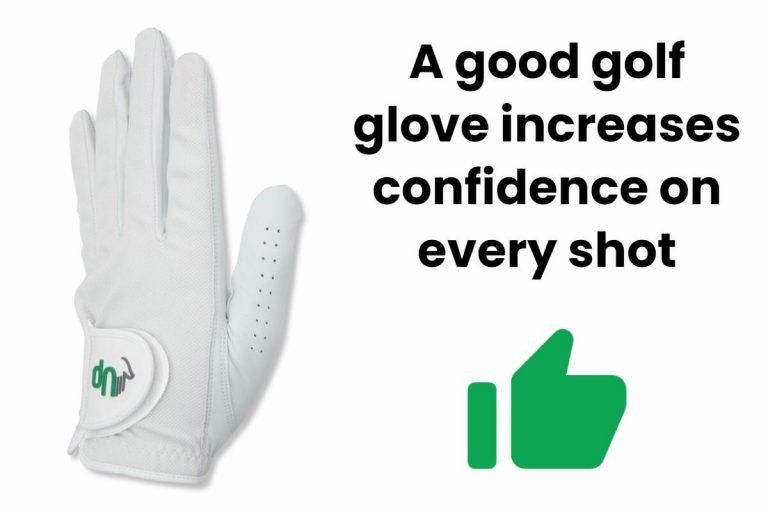One of the most crucial components of golf equipment, golf gloves are frequently disregarded.
The only link you have to the club is through your grip, so it's critical that your glove gives you the security, traction, and protection you require.
ALL YOU NEED TO KNOW ABOUT GOLF GLOVES
One of the most crucial components of golf equipment, golf gloves are frequently disregarded.
The only link you have to the club is through your grip, so it's critical that your glove gives you the security, traction, and protection you require.
Which golf glove is best for you out of the many options available? What factors come into play while selecting a golf glove?
You may learn more about golf gloves and get the answers to some often-asked questions by reading this guide to golf gloves.
What is the purpose of golfers' gloves?
Golf gloves are made to help you grasp the club more firmly. Gloves keep the club from slipping or twisting during the swing because they are stickier than human skin. This enables a more certain and reliable ball strike.
Your hands are protected with golf gloves as well. They stop the golfer's hands from developing blisters and sores. Swinging a golf club can be so uncomfortable when a blister or sore forms that you may decide not to play.
Choosing a golf glove
When choosing a golf glove, there are a number of things to take into account, including cost, breathability, fit, durability, and material.
Price:
Golf gloves can range significantly in price. The majority of high-end Cabretta gloves will cost $20 or more.
Prices for synthetic gloves typically range from $10 to $15 per glove.
Also available for purchase is a set that includes both. An excellent synthetic golf glove for range play and practice. You should also bring a good Cabretta glove for the occasion.
Breathability:
Golf gloves that are breathable are ideal for giving you the optimum performance. This is crucial because discomfort might result from an accumulation of heat and sweat. The glove may feel "crusty" as a result of this. A slicker and less stable grip will result from this.
Some golf gloves feature breathable fabrics that permit heat and sweat to evaporate. This keeps the hand more comfortable and cool, which may result in a better grip.
Grip:
One of the most crucial things to take into account when choosing a golf glove is the grip. You need a glove that will allow you to hold objects securely.
You'll have a greater grip if you wear leather gloves. When handling a golf club, synthetic gloves are often a little bit slicker and less sticky.
Substance & Construction:
The material and construction of the golf glove are key factors to take into account when making a purchase. Leather, synthetics, and other fabrics are frequently used in the production of golf gloves.
You'll get the best grip and feel with leather. Although there are various types of leather for golf gloves, such as kangaroo. Sheep leather known as Cabretta is the most popular and commonly used type.
Typically, synthetic gloves are made of plastic leather, sometimes known as "pleather." Although synthetics may be less expensive, grip and feel are sacrificed. Later in this article, we'll talk more about synthetic gloves.
There will be problems with their construction with several lower-tier glove suppliers. To ensure a consistent product, quality control is included in this. Make careful you pick a reputable glove manufacturer to ensure that the construction, including sizing, is uniform.
Fit:
The ideal fit for golf gloves is snug but not too tight. Additionally, they ought to accommodate the curve of the hand for comfort.
Various golf gloves are made to fit hands of various sizes. Make sure you are familiar with the size charts provided by each manufacturer for golf gloves. Always check their size chart before making a purchase.
The fit and size of their golf gloves may be determined differently by each sizing chart.
For extra comfort, some gloves have a flexible backing. These gloves are typically composed of mesh or lycra (spandex). This provides more airflow to lessen sweaty hands while allowing for some sizing flexibility.
Durability:
Golf shirts ought to last at least a few rounds of golf. They ought to be constructed from strong, easily-resilient materials.
Gloves made of synthetic materials sometimes outlast those made of soft leather. Synthetic gloves, however, lack the quality of leather gloves' grip and feel.
Just keep in mind that less durable and usually more expensive gloves will be made of thinner, softer leather rather than tougher leather or synthetic materials. The feel and grip of the thinner leather gloves, which nonetheless last five to ten rounds, are preferred by golfers.

















